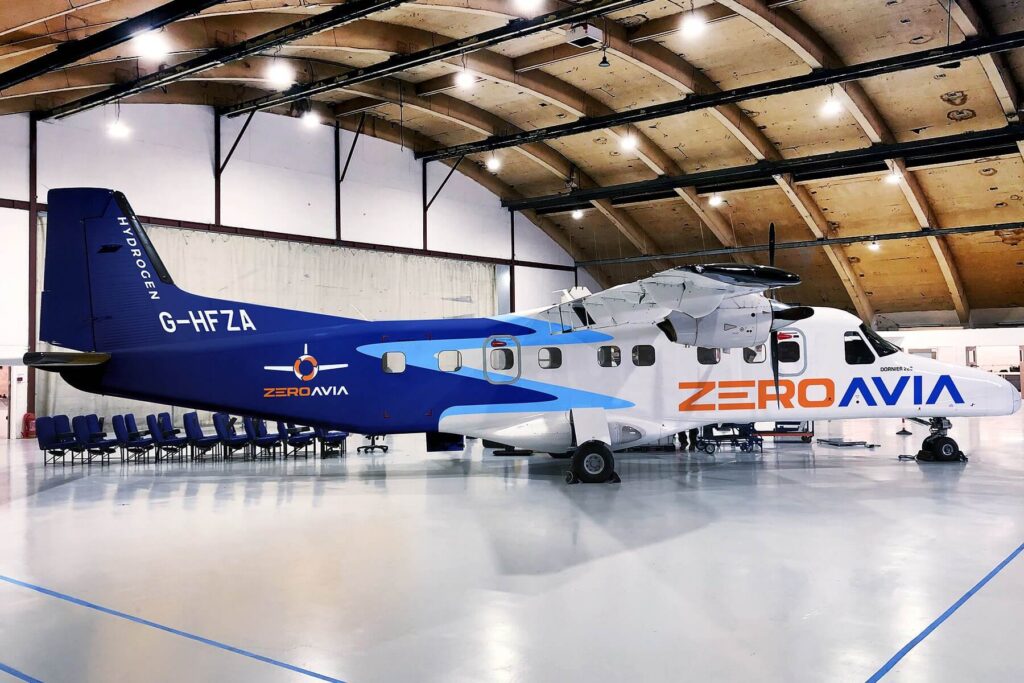Zero emissions aviation company ZeroAvia announced the first commercial flight of its hydrogen-electric aircraft is set to take place between the UK and the Netherlands in 2024.
The flight of the 19-seater aircraft, which is currently under development, is planned to be between London and Rotterdam The Hague Airport (RTM), ZeroAvia announced on October 27, 2021.
“The deal sets a solid timeline for the launch of the first zero emission commercial passenger flights between the UK and the Netherlands, and potentially the first international commercial operation in the world,” ZeroAvia stated in a press release.
The announcement comes hot on the heels of a partnership announced with the parent of Alaska Airlines to work on a larger powertrain to power a regional 76-seater airliner.
For the UK-Netherlands flight, ZeroAvia is working with Royal Schiphol Group, Rotterdam the Hague Innovation Airport Foundation and RTM. It said it was in “advanced talks” with airlines to agree on an operator for the planned route.
“This deal means that, in just three years’ time, you should be able to board a flight and make the hour journey between the UK and the Netherlands without worrying about the impact on the climate,” Sergey Kiselev, Head of Europe at ZeroAvia, commented.
ZeroAvia’s hydrogen-electric powertrain uses hydrogen fuel cells to power electric motors. The company explained this means the only emission is water vapour at manageable temperatures, making flights sustainable and also lowering costs.
ZeroAvia is based in the UK and United States and has obtained experimental certificates for two prototype aircraft from the CAA and the FAA.
Alongside the 19-seater aircraft, ZeroAvia is also looking at larger aircraft. On October 26, it announced a collaboration with Alaska Air Group to develop a hydrogen-electric powertrain for a 76-seat regional aircraft.
Under that partnership, engineers from ZeroAvia and Alaska will work to scale up the existing ZeroAvia powertrain to produce the ZA2000 engine family. ZeroAvia says this new engine family will be capable of producing between 2,000 and 5,000 kilowatts of power with a 500 nautical mile (926 kilometer) range.
The hydrogen-electric powertrain system will be incorporated into a De Havilland DHC-8-400 (Q400) aircraft previously operated by Alaska Air (ALK) subsidiary Horizon. As part of the partnership, Alaska Airlines has agreed options for up to 50 kits to convert its regional aircraft using ZeroAvia’s zero-emission powertrain, starting with the Q400 aircraft.

